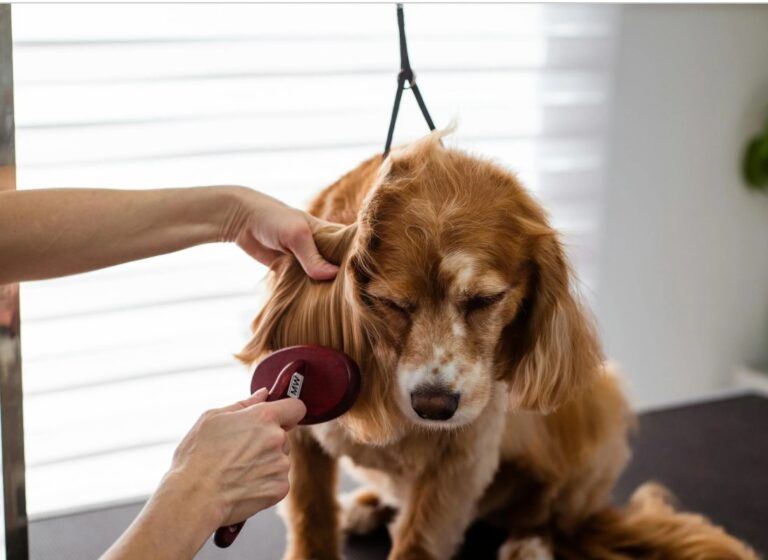How to start a Holiday Cottage Business in UK? – Complete Guide
Last Updated on
1. Introduction to the Holiday Cottage Business in the UK
The holiday cottage industry in the UK is a thriving sector, offering unique and memorable experiences to travelers. As more people seek personalized and home-like accommodations, holiday cottages have become increasingly popular. Starting a holiday cottage business can be rewarding both financially and personally, providing an opportunity to welcome guests from around the world and share the beauty of your chosen location.
Benefits of Starting a Holiday Cottage Business:
- Income Potential: Holiday cottages can provide a steady income stream, especially in popular tourist areas.
- Flexibility: You can choose when to rent out the property and use it for personal vacations during off-peak seasons.
- Personal Satisfaction: Hosting guests and ensuring they have a pleasant stay can be fulfilling.

2. Market Research and Feasibility Study for Holiday Cottage Business
Before diving into the holiday cottage business, conducting thorough market research is crucial. This will help you understand the demand and identify potential challenges and opportunities.
Analyzing the Demand:
- Tourist Trends: Investigate tourist trends in various regions of the UK to determine where holiday cottages are in high demand.
- Competition Analysis: Study the competition to understand what other holiday cottage businesses offer and identify gaps in the market.
Identifying Your Target Market:
- Demographics: Determine the demographics of your ideal guests (e.g., families, couples, solo travelers).
- Preferences: Understand the preferences and expectations of your target market to tailor your offerings accordingly.
3. Choosing the Right Location for Your Holiday Cottage

Selecting the right location is one of the most critical decisions when starting a holiday cottage business.
Factors to Consider:
- Accessibility: Ensure the location is easily accessible by road, rail, or air.
- Local Attractions: Choose a location near popular tourist attractions, natural beauty, or cultural sites.
- Climate: Consider the climate and its impact on seasonal demand.
Popular Regions in the UK for Holiday Cottages:
- Lake District: Known for its stunning landscapes and outdoor activities.
- Cornwall: Famous for its beautiful beaches and charming villages.
- Scottish Highlands: Offers breathtaking scenery and a rich cultural heritage.
4. Legal Requirements and Licenses for Holiday Cottage Business
Understanding and complying with legal requirements is essential for operating a holiday cottage business.
Legal Framework:
- Planning Permissions: Check if you need planning permission to convert a property into a holiday cottage.
- Safety Regulations: Ensure your property complies with health and safety regulations, including fire safety and electrical standards.
Related Article: Legal Requirements & Licenses Required to Start a Holiday Cottage Business in the UK
Required Licenses and Permits:
- Short-Term Letting License: Some regions may require a license for short-term holiday lets.
- Insurance: Obtain appropriate insurance coverage for your holiday cottage business.
Related Article: Business Insurances Required to Start Holiday Cottage Business in UK

5. Financing Your Holiday Cottage Business
Starting a holiday cottage business involves various costs, and securing adequate financing is crucial.
Estimating Startup Costs:
- Property Purchase or Lease: Consider the cost of purchasing or leasing a property.
- Renovation and Furnishing: Budget for any necessary renovations and furnishing to make the property guest-ready.
- Marketing and Operations: Allocate funds for marketing, booking systems, and initial operational expenses.
Exploring Funding Options:
- Personal Savings: Utilize personal savings or assets to fund your business.
- Loans and Mortgages: Explore business loans or mortgages designed for holiday rental properties.
- Investors: Consider seeking investment from partners or investors interested in the holiday rental market.
6. Setting Up Your Holiday Cottage
Creating a comfortable and appealing environment is key to attracting and retaining guests.
Designing and Furnishing:
- Interior Design: Opt for a cozy and welcoming interior design that reflects the local character.
- Quality Furniture: Invest in high-quality, durable furniture that can withstand frequent use.
Related Article: How much does it cost to start a Holiday Cottage Business in the UK?

Essential Amenities and Services:
- Basic Amenities: Ensure the property has essential amenities such as Wi-Fi, heating, and fully equipped kitchens.
- Extra Touches: Consider providing additional amenities like welcome packs, guidebooks, and local produce.
7. Marketing Your Holiday Cottage Business
Effective marketing is vital to reach potential guests and build a successful holiday cottage business.
Marketing Strategies:
- Website: Create a professional website showcasing your property, amenities, and booking options.
- Social Media: Utilize social media platforms to share engaging content and interact with potential guests.
- Local Partnerships: Partner with local businesses and tourism boards to enhance your visibility.
Utilizing Online Platforms:
- Booking Websites: List your property on popular booking platforms such as Airbnb, Booking.com, and Vrbo.
- Reviews and Testimonials: Encourage guests to leave reviews and testimonials to build credibility.
8. Managing Bookings and Customer Relations
Efficiently managing bookings and providing excellent customer service are crucial for success.
Booking System:
- Online Booking: Implement an online booking system to streamline reservations and payments.
- Availability Calendar: Maintain an up-to-date availability calendar to avoid double bookings.
Customer Service:
- Prompt Communication: Respond to inquiries and bookings promptly to ensure a smooth guest experience.
- Guest Experience: Focus on providing exceptional service to encourage repeat bookings and positive reviews.
9. Maintaining Your Holiday Cottage
Regular maintenance and attention to detail are essential for keeping your holiday cottage in top condition.
Regular Maintenance:
- Cleaning: Ensure thorough cleaning between guest stays.
- Repairs: Address any repairs or maintenance issues promptly to avoid guest complaints.
Managing Seasonal Changes:
- Seasonal Updates: Update the property with seasonal decor or amenities to enhance guest experience.
- Off-Peak Promotions: Offer promotions during off-peak seasons to maintain occupancy rates.
Related Article: How Much You Can Earn from Holiday Cottage Business in the UK?
FAQs about Starting a Holiday Cottage Business in the UK
1. What are the average startup costs for a holiday cottage business?
Startup costs can vary widely depending on location, property condition, and renovation needs. Typically, costs include property purchase or lease, renovations, furnishing, and marketing.
2. Do I need planning permission to convert a property into a holiday cottage?
Planning permission requirements vary by region. It’s essential to check with your local council for specific regulations.
3. What type of insurance do I need for my holiday cottage business?
You will need property insurance, liability insurance, and possibly short-term letting insurance to cover potential risks and damages.
4. How can I attract guests to my holiday cottage?
Effective marketing, excellent customer service, and maintaining high standards of cleanliness and amenities are key to attracting and retaining guests.
5. Are there any tax implications for running a holiday cottage business?
Yes, you will need to consider income tax, business rates, and VAT if applicable. It’s advisable to consult with a tax professional for specific guidance.
Feel free to review this content and let me know if any adjustments are needed or if you’d like to proceed with further sections.







